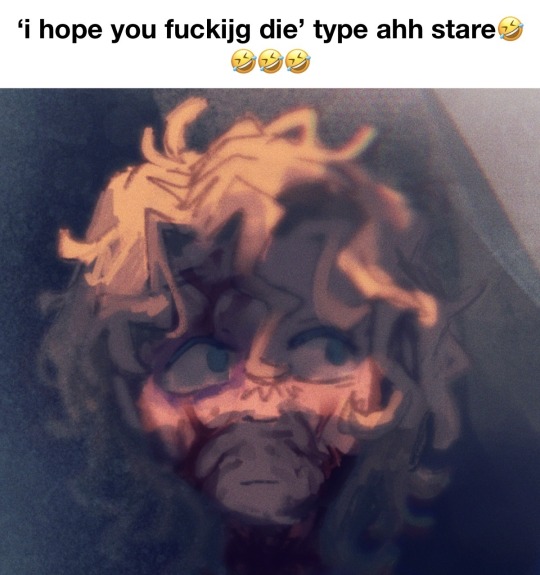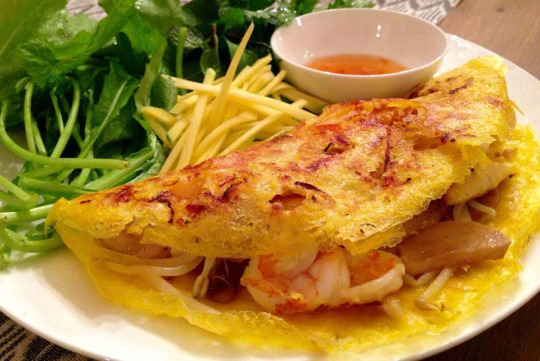#ew i hate writing his name wit no censor
Explore tagged Tumblr posts
Text
have tbp art before i go to sleep😴😴 usual warning for blood n stuff


#the black phone#griffin stagg#the grabber#ew i hate writing his name wit no censor#my art shit#digital art#expect more tbp now its spooky season:33#okay nighty night#griffy i love u
127 notes
·
View notes
Text
Growing Up Vietnamese Canadian | Backstory
May is Asian Heritage Month so I thought I would take the time to reflect on my journey of growing up as a Vietnamese Canadian.

“Where are you from?”
An all too familiar question that left a sour taste in my mouth to which I replied,
“I’m Canadian.”
This prompted further questions of,
“No, where are you really from? Where are your parents from? What is your cultural background?”
For a long time, I didn’t understand what people meant when they asked where I’m really from. I was born and raised in Canada so I truly believed that I was just that. Canadian. To these questions I replied with a smile,
“I’m Vietnamese” or “My parents are from Vietnam.”
This was often met with a
“Oh, Vietnam! My co-worker is Vietnamese” or “I love fo!”
Growing up, I was met with similar inquiries of,
“Let me guess. Are you Chinese? Are you Korean?”
As children, most were not exposed to many other Asian cultures outside of China, Japan, or Korea and so identifying myself as being Vietnamese to another child left them just as clueless as before they asked me about my origins. So why bother saying I’m Vietnamese?

Language is the center of any culture and once the language starts to fade, so does the culture. My parents immigrated to Canada straight from Vietnam, either possessing a thick accent or the inability to speak English at all. This led to Vietnamese being my first language which I spoke in with my parents and brother. I slowly learned English from watching cartoons on TV, interacting with my peers in kindergarten, and from my older cousins who used to babysit. I didn’t see an issue being bilingual and speaking to my family in Vietnamese until one day, it became an issue. Within my neighbourhood, my brother and I were the only Asian children. However as children, we never saw this as a problem. When I was 6 and my brother was 4, we were playing with all the other children and my brother said,
“Chị, I don’t understand this game.”
As I opened my mouth to answer, my neighbour interjected,
“Who is ‘chị ’?”
My brother points to me,
“Jennifer is chị, it’s Vietnamese for older sister.”
“You should just call her Jennifer because that’s her name. We all speak English so you should too.”
This seemingly innocent moment became a pivotal point in which the effects rippled through the rest of my family’s life. Just like every other child, we just wanted to fit in and being Vietnamese deterred this. From then on, my brother stopped calling me chị and his use of Vietnamese declined dramatically. It was this moment in which we were ashamed of our heritage. Ashamed and torn. That’s often how I felt as my Western and Eastern identifies battled against each other. A common theme that haunted my childhood and adolescence.
My parents witnessed their children had slowly stopped speaking their mother language and instead, assimilated into the Western culture. This is probably why they forced my brother and I into Saturday Vietnamese school when I turned 8. When the school bell rang on Fridays at 3pm, all the other kids rejoiced that the weekend had arrived. I groaned at the thought of having to spend my Saturday afternoon learning Vietnamese instead of sleeping in or watching cartoons like all the other kids. Just another reason why I didn’t fit in, just another reason why I didn’t want to identify with being Vietnamese. The real reason why I dreaded Saturday school was because although I excelled in school, I struggled in Vietnamese school. I struggled with what once was my first language, but now felt foreign on my tongue. Going to Vietnamese school made me more ashamed of calling myself Vietnamese because I traded my fluency in Vietnamese for my fluency in English. I felt ashamed to call myself Vietnamese because how can I identify with a culture in which I could not speak?
Remember, when a language fades so does the culture.
Saturday school improved my Vietnamese, but I hated every moment of it. I felt isolated from my peers that were fluent and excelled in Saturday school and I felt isolated from my peers who rebelled and only spoke English. I always felt somewhere in the middle, identifying both as Vietnamese and Canadian. As I went from childhood into adolescence, I spoke Viet-lish, a combination of Vietnamese and English, a true representation of my struggle growing up a Vietnamese Canadian.

The conflict between the two halves of my identity continued when it came to another important element of culture: food. To any child, their mother’s cooking is the best in the world. It’s because this is what we grew up eating, this is what we identified as comfort, as our home. I truly did love Vietnamese food until grade one. It was lunchtime and all the other children started to unwrap their peanut butter and jelly sandwiches, their Lunchables, or pizza. Meanwhile for lunch, I excitedly opened my lunch bag to eat the bánh xèo my mother had made the night before. Then I opened the nước mắm dipping sauce. This was when I heard a loud,
“What is that smell?”
This outcry was echoed throughout the classroom before one boy pointed at me, exclaiming,
“Jennifer brought some dead fish for lunch!”
A couple of classmates agreed and some even laughed while I ate my favourite dish in silence. In shame. I went home and asked my mom to pack me sandwiches, lunchables, and even asked for money to buy school lunches. Again, my parents watch me toss aside my rich heritage filled with aromatic ingredients that attract the nose, harmony of textures, freshness of the food, spices detected by the tongue, sounds from crisp and crunchy food, and food arrangements that entice the eyes. In exchange, I got the lunchables, the sandwiches, and the school lunch pizzas. And I was content in living that life at school and eating Vietnamese food at home. My shame prevented me from enjoying and embracing my cultural food outside of my home for fear of being judged and ridiculed. This shame was re-ignited in high school when I brought some food in a huyết container. My best friend, who was Chinese, exclaimed,
“Ew. Pig’s blood? Gross.”
“Oh it’s just the container, I don’t eat that stuff. Totally gross,”
I said, lying through my teeth, knowing that this was my favourite part of my favourite Vietnamese dish, bún riêu. Even with my best friend, I had to censor that I was Vietnamese. Even with another Asian, I felt ashamed that I was Vietnamese.

Community? I didn’t know the meaning of this word. I didn’t have any close Vietnamese friends growing up. My parents were not involved in the community as they were always working to pay the bills. I didn’t have anyone who could support me while I tried to navigate being a Vietnamese born Canadian child. Besides my brother, I never felt like anyone else went through the same struggles and confusion I did. I didn’t have anyone to talk to because my brother was three years younger and there was the language barrier with my parents.

Growing up Vietnamese Canadian often meant I was categorized as Asian. Either you were Chinese or the other Asian countries were lumped together into others. In that way, masking my cultural background was easy due to the general label that other kids used to give. Instead of embracing being Vietnamese, I turned to other cultures to embrace. I was enamoured by Japanese culture from anime, the cute sounding language, the delicious food, and the general acceptance and equal obsession from my peers. Immersing myself into Japanese culture that all my other friends loved made me feel like I fit in, and so, I rarely disclosed my background unless explicitly asked.
Once a year at my middle school, the cafeteria was turned into an international bazaar showcasing booths representing different culture’s food, clothing, and decorations. As mentioned, there was a large booth dedicated to China and Taiwan, but Japan, Korea, and Vietnam were lumped into one booth. I could have made Vietnamese food and worn a traditional Vietnamese dress, áo dài. Instead, I made sushi and wore a kimono.
Then as I entered high school, my cultural interest shifted to Korean culture once Korean pop music (kpop) entered my life. I loved Korean culture so much that after watching Korean dramas, I tried to learn Korean. I was more interested in learning another language than my native language. I didn’t see an issue with embracing other cultures given the multiculturalism of Canada. However, I didn’t realize then that this was just a cover up for my shame of being Vietnamese. I was listening to kpop and Korean ballads while rejecting heart wrenching Vietnamese cải lươngs. I was watching Korean dramas, music shows variety shows and begrudgingly watched Paris by Night and Asia. I was actively trying to learn how to speak and write Korean while I hated the thought of having to go to Vietnamese school.
Ashamed and torn. A constant motif in my youth motivated by wanting to fit in and give myself an identity. In Canada, I was considered an Asian, an immigrant. If I went back to Vietnam, the natives would consider me a Canadian, a foreigner. I never quite fitted in either world and this troubled me throughout my adolescence. I was always searching for an answer to the question I hated so much, “Where are you from?”

I found my answer when I entered university.
0 notes